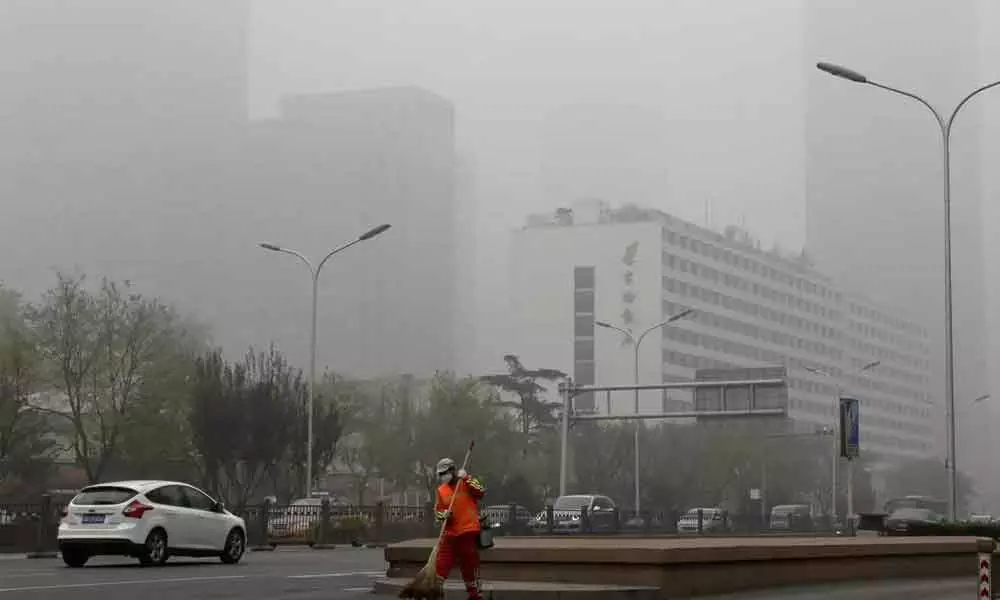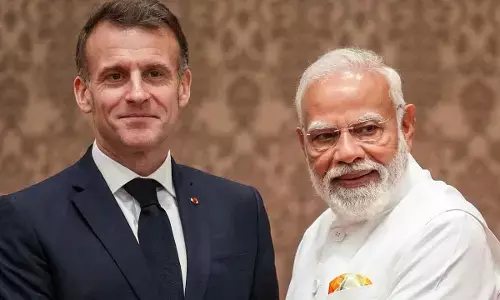India needs to limit carbon emissions: G20 climate report

India needs to limit carbon emissions: G20 climate report
As the world's leading economies are directing trillions of dollars towards COVID-19 recovery packages, a significant proportion is going to fossil fuel industries without climate-related conditions, risking clean energy opportunities in the coming decade, a G20 climate performance report said on Wednesday.
At least 19 of the G20 countries have chosen to provide financial support to their domestic oil, coal and/or gas sectors and 14 countries bailed out their national airline companies without climate conditions attached.
Only four G20 countries provided more funding to green sectors compared with fossil fuel or other emissions-intensive industries.
"The recovery packages can solve the climate crisis or make it worse," said Charlene Watson of the Overseas Development Institute.
"Some G20 members like the EU, France or Germany are setting mostly a good example for building more resilient economies whilst shielding themselves against the accelerating climate impacts. Others direct too much support to fossil fuels, putting at risk positive recent developments."
According to the report, in 2019 energy-related CO2 emissions declined in G20 countries for the first time due to climate policies rather than due to external shocks (such as the 2008-09 financial crisis), namely by 0.1 per cent, down from a 1.9 per cent growth in 2018.
Due to the impacts of the pandemic, G20 energy-related CO2 emissions are projected to be 7.5 per cent lower by the end of 2020 compared with 2019.
Most notably, global aviation emissions collapsed this year.
The share of renewable energy in power generation increased in 19 of the G20 countries in 2019, accounting for 27 per cent of power generation in the G20.
It is projected to continue to increase in all G20 countries and will likely make up almost 28 per cent of power generation in 2020.
Coal consumption decreased by two per cent. Notably, only five G20 members have set targets to phase out coal, it said.
"Before the pandemic hit, results of climate action were coming to fruition in some energy-related sectors and the crisis consolidated those trends in a majority of the G20 countries," said Jorge Villarreal of Iniciativa Climatica de Mexico.
With China, South Africa, Japan and South Korea the latest to join the race to carbon neutrality by mid-century, the report finds that the momentum behind tougher climate targets among the world's largest emitters is building.
However, short-term policy frameworks and investments are not yet consistent with long-term plans.
This is despite the fact that climate-related weather extremes such as heat waves, wildfires and flooding will become more severe in G20 countries as global warming approaches the 1.5 degrees Celsius mark.
Among G20 members, Australia, Brazil, France, Italy, Mexico, Turkey, India, Saudi Arabia and South Africa risk greater exposure to climate-related impacts compared with global projections at 1.5 degrees.
The analysis also identifies critical differences in how governments are responding to the decarbonisation challenge. For instance, Japan, France, Britain and Canada have set target dates for phasing out fossil fuel cars, while in comparison, the Trump administration rolled back regulations aimed at reducing transport emissions.
While 18 of the G20 countries are in the process of or have already implemented carbon-pricing schemes, Australia and India have no such plans.
Further, while Canada, France, and Britain have introduced fully restricted public financing for coal, China, India, Indonesia, Russia and South Africa have no restrictions in place.
"India's transport sector currently accounts for 14 per cent of its energy-related CO2 emissions. As car ownership grows, India should quickly increase the share of EVs and invest in sustainable urban public transport," RR Rashmi from The Energy and Resources Institute (TERI) told IANS.




